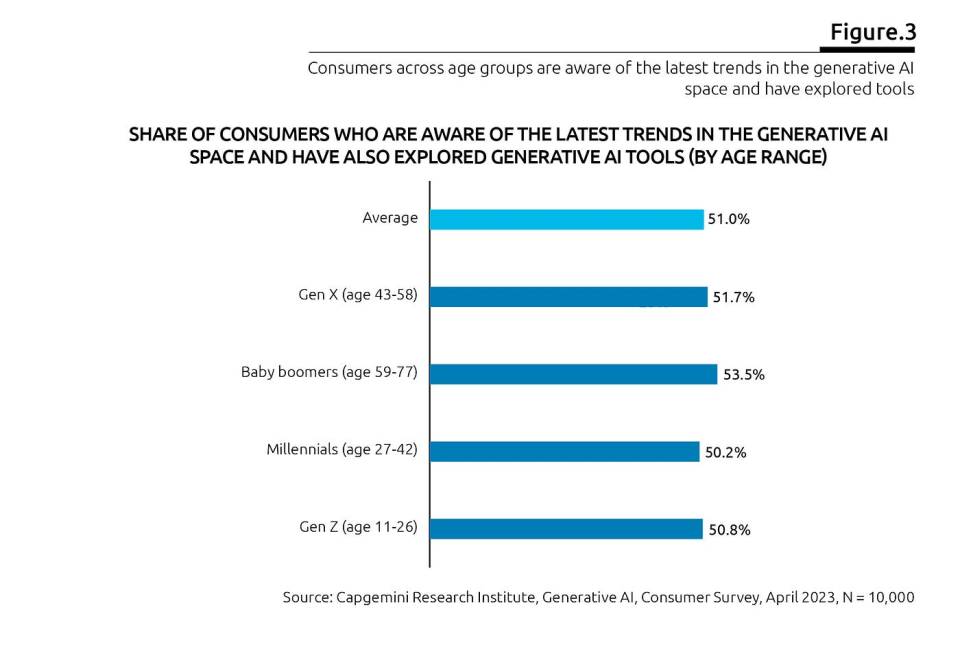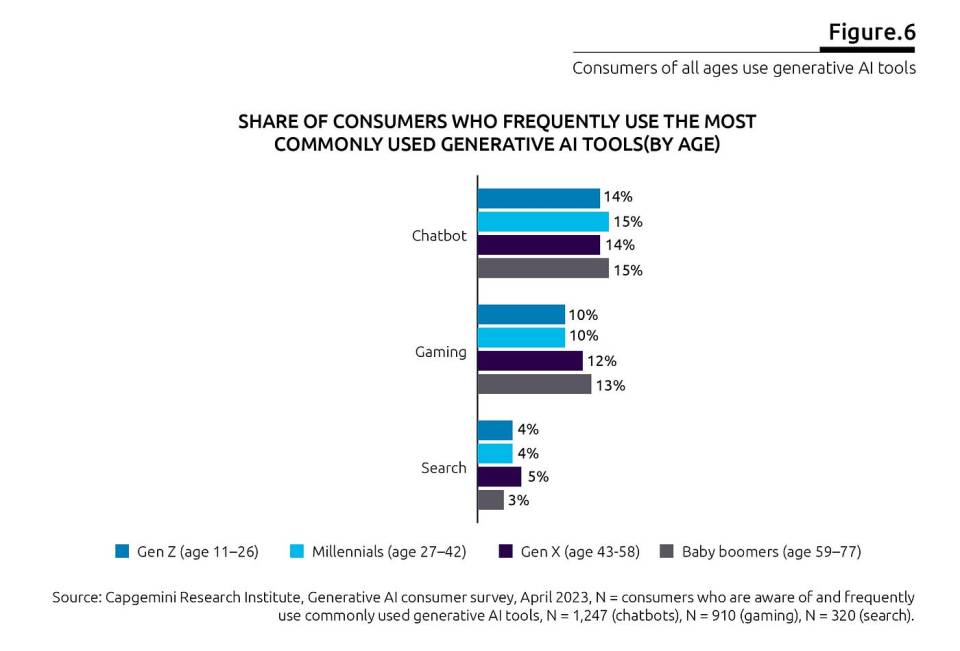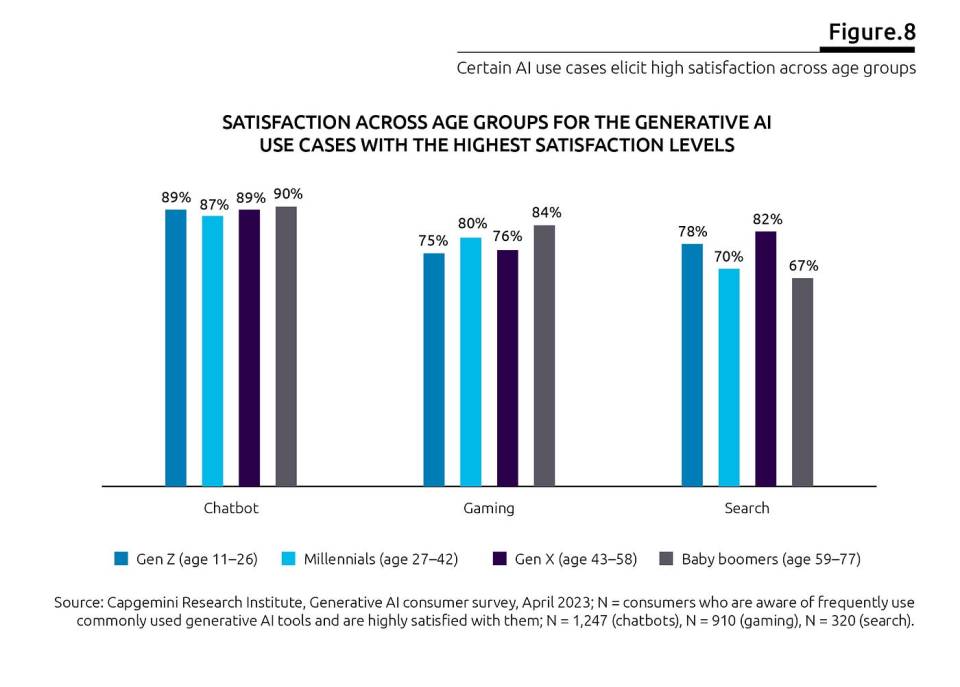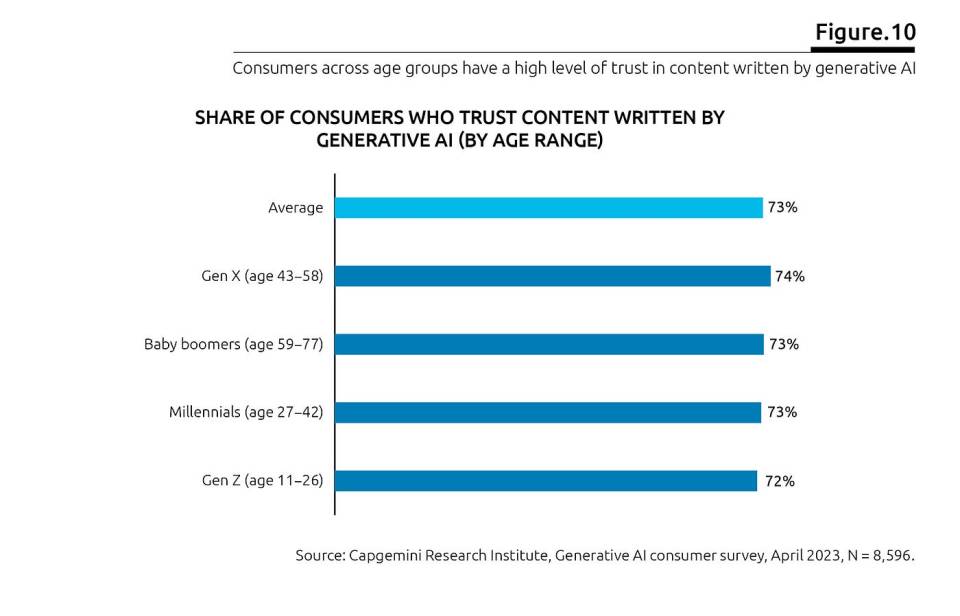Written by: Steve Jones | Capgemini
Working with the folks at the Capgemini Research Institute is always fun, when we set up the surveys the intent is always to find things out rather than prove them. With the latest report on Consumer adoption of Generative AI that mindset has led to me losing a friendly wager. Because I was absolutely sure we’d see a generational divide with GenZ in particular being ahead of the game. This is because that is what we nearly always see with new technologies. Instead what we saw is that actually adoption was pretty flat across all groups.

That is over 50% of the 10,000 people interviewed who have tried Generative AI tools, realistically in the 7 months since ChatGPT launched.
50% penetration in 7 months. That is frankly amazing. But what I find more amazing, and heartening, is that this adoption isn’t a “TikTok” curve with younger generations far outstripping older ones, its pretty even across the board, with Boomers actually being a few points ahead of the game. When we look at where they are using it, well that gets even more interesting for me.

Although its a statistically small difference, its great to think of GenX and Boomers getting the edge in Fortnite by using Generative AI! Seriously though, this again shows a very even adoption across the age ranges, really aligning to the ease of use that Generative AI tools enable. It also plays to one of the old adages of technology: There are two industries that drive new technology adoption, Computer Gaming is the other one.

On satisfaction there are some interesting differences, with Millennials and Boomers noticeably preferring the gaming experience but also noticeably liking the search experience much less. Clearly a lot more research is going to be done over that search category, as that represents a very clear an obvious market battle ground, but with two thirds of Boomers already liking the experience it isn’t a case of bad needing to become good, its good needing to become great. As we know however when we saw Google take over from Altavista, the market impact of good to great is dramatic.
OK but there is too much trust here
One finding in there that worried the Trusted AI person in me was the level of trust that all generations have in the created content.

Again we aren’t seeing differences based on age, with nearly 75% of people across all age ranges saying they trust the content. For a technology to have this sort of approval after only 7 months is remarkable, and a little bit concerning. I might be more on the Trusted AI side, but I’ve had enough experience with several models now to say that my trust level in the content isn’t terribly high and I’m validating what I see. There is a risk here that misplaced trust becomes a problem. That this is constant across the generations is extremely interesting though, as often we’d expect older people to distrust new technologies more.
Caveats and more research
So this is a very detailed report that I advise you to read all of the report, and I’ll finish with a few caveats on the data, firstly out of the 10,000 people surveyed 600 were Boomers, that is still a significantly significant sample, but it is less than the number of GenZ people interviewed, which means that the GenZ numbers are statistically more accurate. The other piece is that the education levels are statistically high, with over 75% having at least an undergraduate degree. This means that while within those groups the age discrepancy is low, you can’t say that this is constant across education ranges.
Much more research remains to be done, but one thing is for sure, the ease of use of Generative AI is clearly something that isn’t age dependent.


